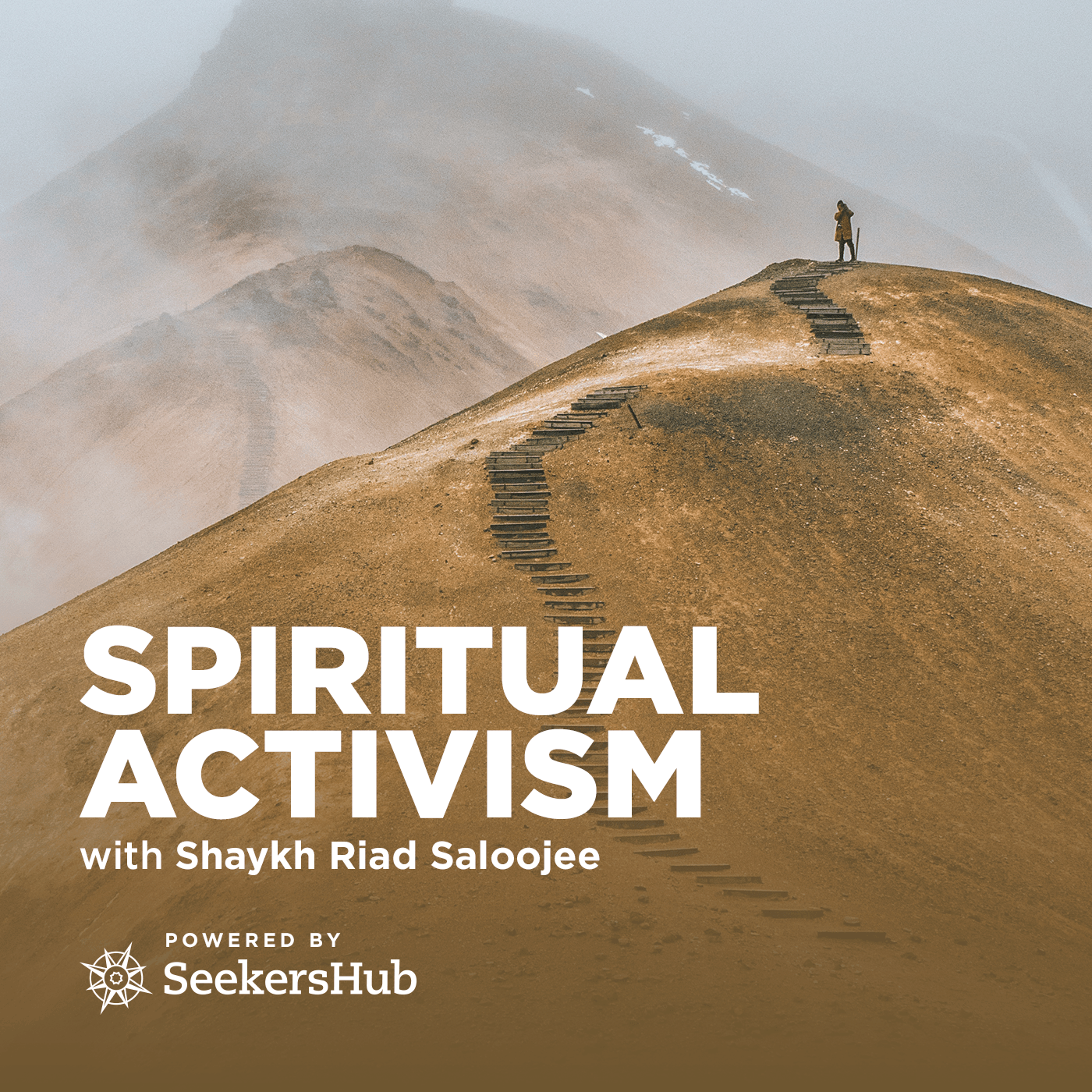04 – Identifying My Politics
: Play in a new window | Download to your device (10.7MB)
TOPIC ONE – UNDERSTANDING ACTIVE SPIRITUALITY
Who I am in essence is really a function of my impulses, aims and actions. My lower self (nafs) is either one or a combination of four realities: a cow, a wild-dog, a devil (Shaytan) or an angel (malak).
When my energies and drives are primary directed to hedonistic pleasures, my lower self (nafs) is cow-like; when they are directed to the hegemony of hurt and violence over others, I am a wild-dog; when they are directed to duplicity, arrogance and seeking self-aggrandizement, I am a devil; and when they are devoted to pursuit of the Divine, I am angelic.
Many profound implications arise from this self-knowledge. My perception of the environment around me, the values I seek, the activism I employ and my actions and reactions are all conditioned by my inner realities. Let us look at each in turn.
First, our environments are in essence the aggregate of the realities of our lower selves (or nufus) and their pursuits of pleasure. At the level of the family, neighborhood, province or international arena – whether social, economic or political in dimension – the preferences, culture and actions of our collective being really tell the tale of the reality of our individual inner selves.
Second, the value of happiness is relative depending on the type of lower self (nafs) that I have. The lower self pursues happiness commensurate with its nature. The cattle-like, predatory and Satanic self only pursues the acquisition of that which guarantees its pleasure. But the truest, lasting happiness is the angelic happiness of seeking the Divine, the Infinite in Beauty and Majesty, and actualizing Divine values and virtues that are necessary for a meaningful and dignified life.
Third, the change of the lower self (nafs) is the core and the key of any real, profound social change. It could be argue that the common, underlying dimension of all types of activism lies in transcending the three self-centred, limiting realities of the lower self, individually and collectively, to produce social change with the deepest foundation and longevity.
Fourth, social transformation without genuine, authentic transformation of individuals is a mirage, a tree without roots, pie-in-the-sky. As I struggle to produce change in society-at-large, I should never neglect to focus in parallel on my individual, internal change. If I do not change, or am not in the process of changing, my efforts are in vain.
My change will require a constant and sincere effort. For my heart (qalb) to truly be free in its perception, experience and will, it must be free from the impact and grip of the lower self (nafs). And to free my lower self (nafs) from its cattle-like, predatory and Satanic proclivities is no easy task. But it is a necessary undertaking for without the creation of an angelic lower self, the heart (qalb) will always be the prisoner of the lower self (nafs), limited in its perception; suffocated from experiencing the Divine and Divine values; and fettered in its resolve and will to seek and strive for the virtuous.
It is only through the purification of the lower self (nafs) that the heart (qalb) will attain its freedom and true happiness in attachment to the Divine. And this is precisely the subject and quest of Islamic spirituality. And this is precisely what is needed for activism of any kind.
There is no inherent disconnect or contradiction between Islamic Spirituality and social or political activism. In fact, Islamic spirituality is not only relevant but essential to all forms of activism. This podcast with Shaykh Riad Saloojee will present a paradigm for a spiritually-inspired activism where activism achieves what it was always meant to be: a vehicle for nearness to the Divine through genuine individual and social ethical change.
This series will comprise of seven discussions that will explore 1. The foundations of Islamic spirituality; 2. The spiritual ethos that is the basis of all activism; 3. The ailments of activism unhinged from spirituality; 4. The laws that govern activism; 5. The importance of “inner,” spiritual activism for beneficial “outer” activism; 6. Vignettes from Prophetic activism; and 7. An application of how spirituality must inform true environmental activism.
For more podcasts by SeekersGuidance, visit SeekersGuidance.org/podcasts.

